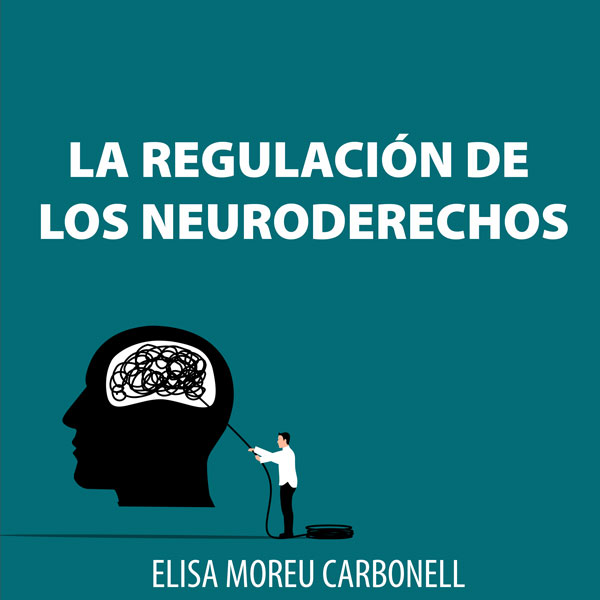La regulación de los neuroderechos
Artículo publicado en: Revista General de Legislación y Jurisprudencia 01/2022

- Artículo publicado en: Revista General de Legislación y Jurisprudencia
- Numero: 01/2022
- Fecha: 2022-01-01
- ISSN: 0210-8518
- Páginas: 30 (69 - 98)
- Idioma: español (castellano)
- Editorial: Editorial Reus
- Palabras Clave:
derecho,
derechos humanos,
neuroderechos,
neurotecnología
- Materias:
Nuevas tecnologías
- Materias thema:
PSAD
- DOI: https://doi.org/10.30462/rglj-2022-01-04-840
La regulación de los neuroderechos
Artículo publicado en: Revista General de Legislación y Jurisprudencia 01/2022
Autoría: Elisa Moreu Carbonell
10,00€
La relación entre Derecho y neurotecnología es apasionante. Su impacto tensa las costuras jurídicas: desde la propia identidad de la persona y su libre albedrío, hasta la responsabilidad por daños. Este trabajo se adentra en los llamados neuroderechos. La reforma constitucional emprendida por Chile y la «Carta de Derechos Digitales del Gobierno de España» son dos vías distintas para el mismo fin: regular y proteger los derechos humanos frente a los avances de la neurotecnología.
I. HOY LAS CIENCIAS ADELANTAN QUE ES UNA BARBARIDAD.
II. EL DERECHO A VARIOS PASOS DE LA REALIDAD.
III. LA LIBERTAD DE INVESTIGACIÓN EN EL ÁMBITO DE LAS NEUROTECNOLOGÍAS
1. Límites que impone la Ley de Investigación Biomédica.
2. Responsabilidad por daños derivados de la investigación.
3. ¿Y qué pasa con las neurotecnologías?
IV. EL IMPACTO DE LAS NEUROTECNOLOGÍAS EN LA IDENTIDAD DE LA PERSONA Y EL LIBRE ALBEDRÍO. EL CÍBORG DE MEJORA.
V. REGULAR O NO REGULAR: THAT’S THE QUESTION
1. Definición y diseño de los neuroderechos.
2. ¿Quién debe regular?
3. Las voces críticas. ¿Qué hay de nuevo, viejo?
VI. CHILE, LABORATORIO MUNDIAL DE LOS NEURODERECHOS
1. El proyecto de ley sobre protección de los neuroderechos y la integridad mental.
2. La Ley Nº. 21383 de reforma constitucional.
VII. EL MODELO «SOFT LAW». LA CARTA DE DERECHOS DIGITALES DEL GOBIERNO DE ESPAÑA.
VIII. CONCLUSIONES.
IX. BIBLIOGRAFÍA.
Description
The relationship between Law and neurotechnologies is an fascinating subject. The impact of neurotechnologies is significant: from the human personal identity and the freedom of choice, to the legal liability. This paper deals with the so-called neuro-rights. The Chilean constitutional reform and the “Digital Bill of Rights” of the Government of Spain are two different paths to the same end: to regulate and protect Human Rights in the face of the advances of neurotechnology.


